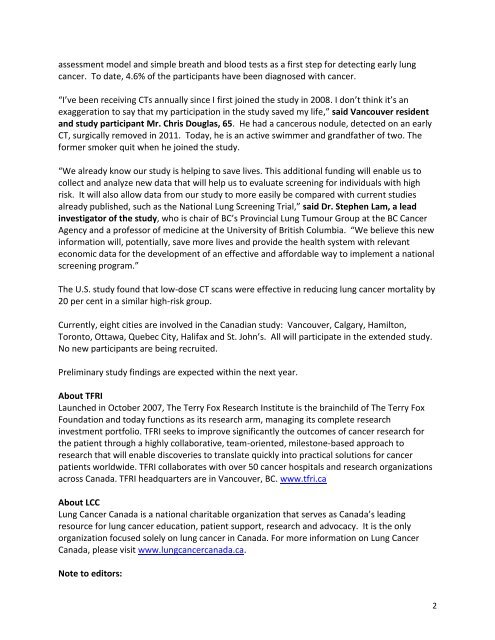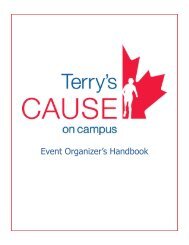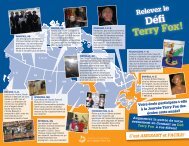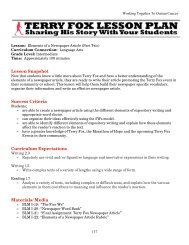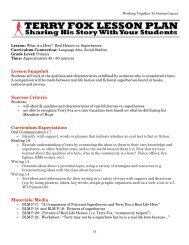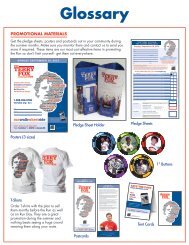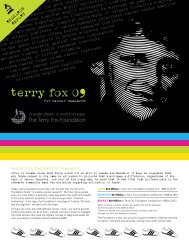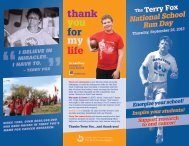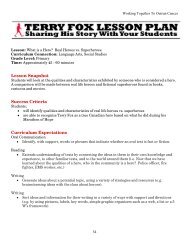June 27, 2013 - Terry Fox Foundation
June 27, 2013 - Terry Fox Foundation
June 27, 2013 - Terry Fox Foundation
You also want an ePaper? Increase the reach of your titles
YUMPU automatically turns print PDFs into web optimized ePapers that Google loves.
assessment model and simple breath and blood tests as a first step for detecting early lungcancer. To date, 4.6% of the participants have been diagnosed with cancer.“I’ve been receiving CTs annually since I first joined the study in 2008. I don’t think it’s anexaggeration to say that my participation in the study saved my life,” said Vancouver residentand study participant Mr. Chris Douglas, 65. He had a cancerous nodule, detected on an earlyCT, surgically removed in 2011. Today, he is an active swimmer and grandfather of two. Theformer smoker quit when he joined the study.“We already know our study is helping to save lives. This additional funding will enable us tocollect and analyze new data that will help us to evaluate screening for individuals with highrisk. It will also allow data from our study to more easily be compared with current studiesalready published, such as the National Lung Screening Trial,” said Dr. Stephen Lam, a leadinvestigator of the study, who is chair of BC’s Provincial Lung Tumour Group at the BC CancerAgency and a professor of medicine at the University of British Columbia. “We believe this newinformation will, potentially, save more lives and provide the health system with relevanteconomic data for the development of an effective and affordable way to implement a nationalscreening program.”The U.S. study found that low-dose CT scans were effective in reducing lung cancer mortality by20 per cent in a similar high-risk group.Currently, eight cities are involved in the Canadian study: Vancouver, Calgary, Hamilton,Toronto, Ottawa, Quebec City, Halifax and St. John’s. All will participate in the extended study.No new participants are being recruited.Preliminary study findings are expected within the next year.About TFRILaunched in October 2007, The <strong>Terry</strong> <strong>Fox</strong> Research Institute is the brainchild of The <strong>Terry</strong> <strong>Fox</strong><strong>Foundation</strong> and today functions as its research arm, managing its complete researchinvestment portfolio. TFRI seeks to improve significantly the outcomes of cancer research forthe patient through a highly collaborative, team-oriented, milestone-based approach toresearch that will enable discoveries to translate quickly into practical solutions for cancerpatients worldwide. TFRI collaborates with over 50 cancer hospitals and research organizationsacross Canada. TFRI headquarters are in Vancouver, BC. www.tfri.caAbout LCCLung Cancer Canada is a national charitable organization that serves as Canada’s leadingresource for lung cancer education, patient support, research and advocacy. It is the onlyorganization focused solely on lung cancer in Canada. For more information on Lung CancerCanada, please visit www.lungcancercanada.ca.Note to editors:2


